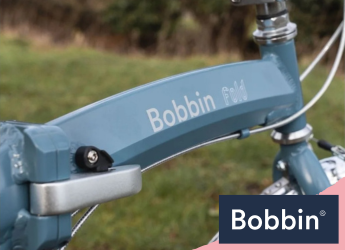Are Folding Bikes Harder to Ride?
Folding bikes are easy to move and store. You can fold them up and take them wherever you need to go. Thanks to their compactness and convenience, they’re also easy to fit in most trains, buses, cars, and taxis. Thus, folding bikes have become the ultimate transportation choice for commuters.
But is riding one more challenging than a standard two-wheel, perhaps a lot easier?
Yes or No?
Yes, riding a folding bike can either be harder or easier, depending on different factors. The smaller wheels can affect stability and handling, especially on rough terrain. Meanwhile, the compact design makes it lighter and more manoeuvrable.
Ultimately, it boils down to individual preference, how you ride, and the bike you’re using. Each rider has different comfort levels. Factors like wheel size and frame design can also influence the riding experience. So, whether this type of bicycle is tricky to ride or like a walk in the park varies from person to person and bike to bike.
Are Folding Bikes Suitable for Beginners?
Absolutely, thanks to their versatility, ease of use, and compact design! Most can also adjust to fit riders of various sizes and skill levels. If you want to include cycling in your daily routine for commuting or leisure, a folding bike could be for you.
Note: Beginners must invest in a bike with stable handling and proper fit for safety and comfort. For more information, check out our guide to bike size for adults.
How Does the Weight of Folding Bikes Influence Your Ride?
Heavier bikes require more effort to pedal and manoeuvre. This is especially the case when climbing hills or navigating tight spaces. Lighter models tend to be easier to handle and transport but may feel less stable at higher speeds.
When shopping, check the product description online or ask the salesperson. Look for the specifications listed on the manufacturer’s website or packaging. Read reviews from other customers who have purchased the bike to get an idea of its weight. If possible, physically lift the bike or ask to test its weight in the store before buying.
What Extra Challenges Does This Bike Pose for Riders?
There are several hurdles compared to riding conventional bicycles. To start, their smaller wheels may result in a less smooth ride, especially over rough terrain. Folding mechanisms can sometimes be complex. For one, it may require you to practice folding and unfolding efficiently.
The compact frame may also feel less stable at higher speeds or when making sharp turns. If you’re used to regular bikes, you might find it difficult to find a comfortable position for longer rides.
So, while folding bikes offer convenience, riders should be prepared for these setbacks.
Are You Ready to Ride?
Before hopping on a folding bike, consider the following factors for a smooth and fun ride:
- Familiarise yourself with the folding mechanism to avoid frustration when folding and unfolding.
- Check where you plan to ride. While folding bikes work great in urban settings, they might not handle bumpy roads or trails.
- Consider the bike’s weight and portability, especially if you plan to carry it more often.
- You’ll also want to make sure it fits your body size and riding style to maximise comfort and control.
- Factor in maintenance requirements. Folding bikes may need more frequent adjustments due to their compact design.
Riding a folding bike may feel slightly different at first. But with practice, you can adjust quickly and find it just as easy as riding traditional bikes. For a lifelong investment in a bicycle, check out our range of adult bikes for a wider selection.
Feel free to contact us if you have any questions! Up next on your reading list: How to Fold a Folding Bike











